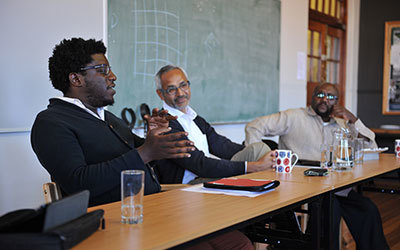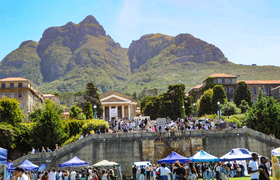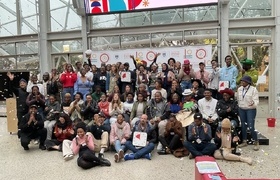Car culture under the spotlight
09 June 2015
Academic literature on urban history is strangely silent on the history of the car.
So explained Assoc Prof Shamil Jeppie, director of the Institute for Humanities in Africa (HUMA), while serving on a panel focused on African automobilities and cultures of the road. His fellow panellists were Dr Mbugua wa Mungai of the Kenyatta University in Nairobi and Wamuwi Mbao, a lecturer from Stellenbosch University.
A research interest for Jeppie is the role and importance of cars for people living on the Cape Flats. He believes a three-volume history of the car is needed, especially in light of the fact that one of the most-read publications in South Africa is Auto Trader, where second-hand cars are advertised for sale.
Mbugua wa Mungai's interest revolves around Kenya's matatu (informal taxi) industry. He believes people's behaviour on roads gives insight into a nation and that, at times, the matatu industry represents the worst aspects of Kenya.
Wamuwi Mbao, a coordinator of the Stellenbosch Literary Project (SLiP), considers fuel and the way people relate to it as one of the unexamined aspects of everyday life. He observes that people consider fuel with "a degree of reverence" and that filling stations have come to represent much more than just places to refuel. "Filling up has become a process of refreshment while filling stations have become familiar beacons – where we go to ask directions when we're lost – in the urban jungle."
For more on the workshop that followed on from this discussion, visit the Humanities website.
Photo caption: Discussing the significance of roads and cars in modern day life are (from left) Wamuwi Mbao, Assoc Prof Shamil Jeppie and Dr Mbugua wa Mungai. (Photo by Je'nine May.)
 This work is licensed under a Creative Commons Attribution-NoDerivatives 4.0 International License.
This work is licensed under a Creative Commons Attribution-NoDerivatives 4.0 International License.
Please view the republishing articles page for more information.










